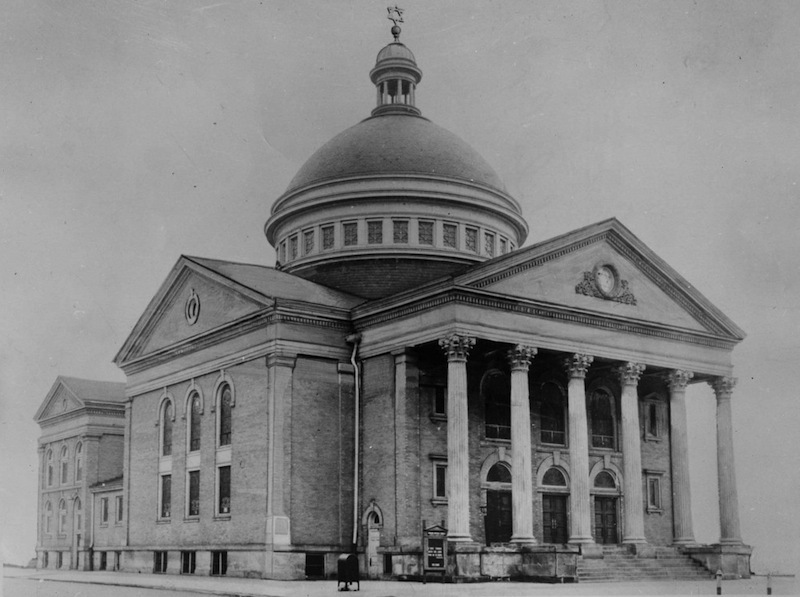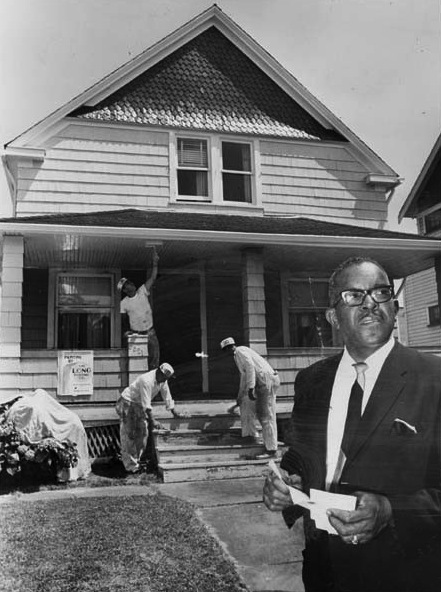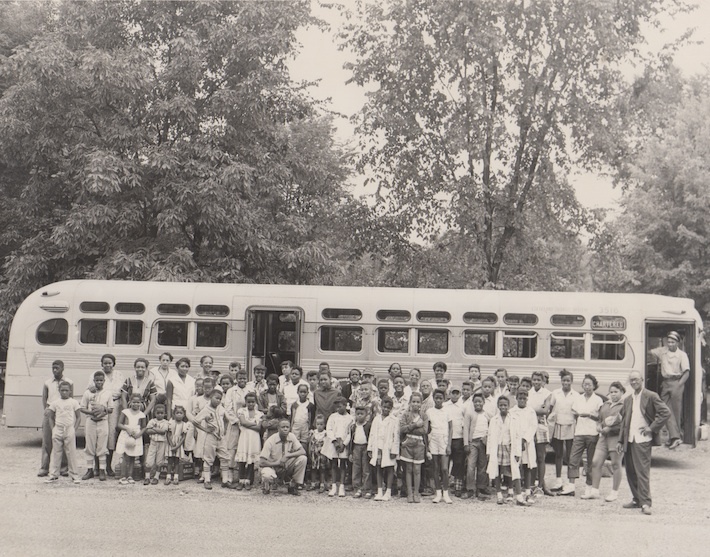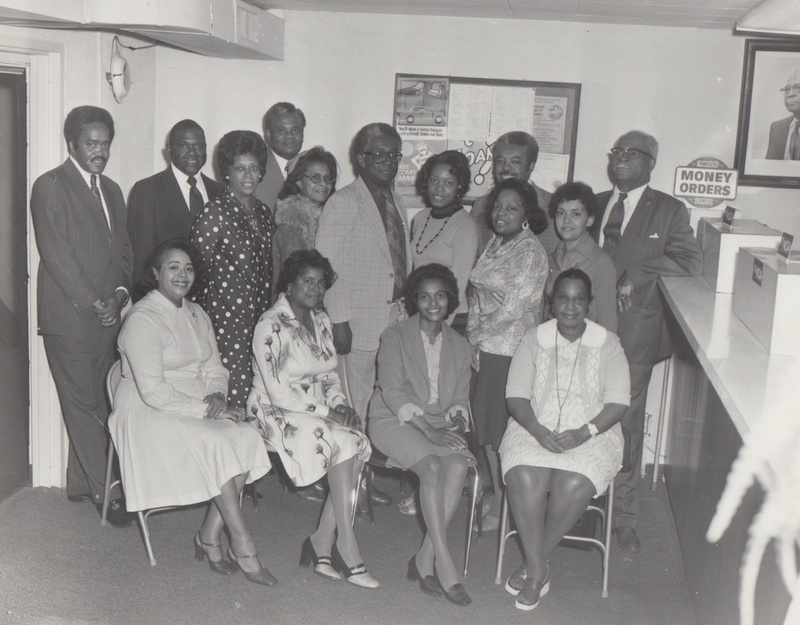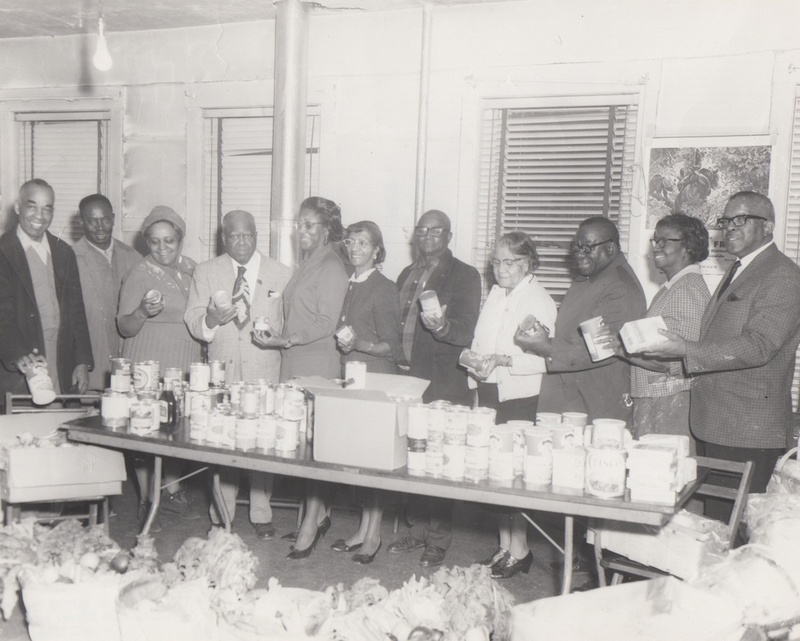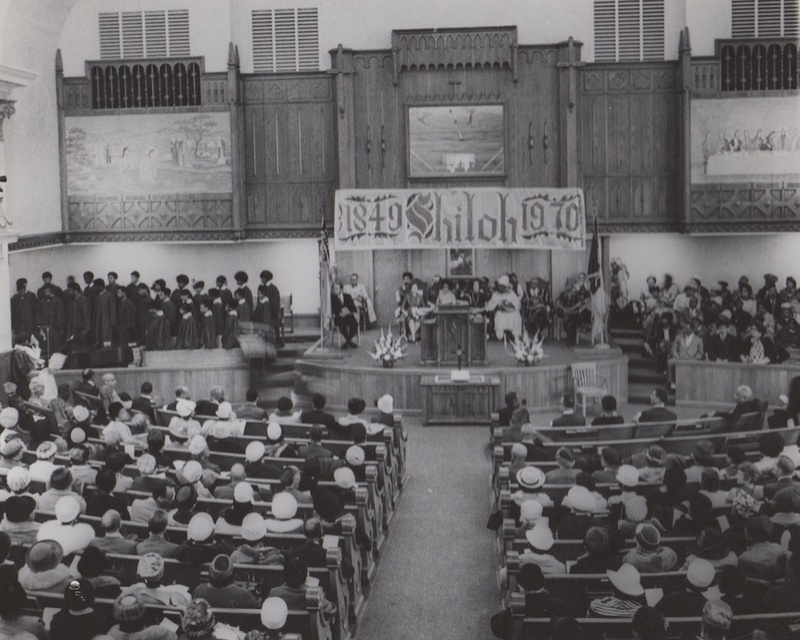Shiloh Baptist Church
The International Tea and Cleveland's Civil Rights Struggle

Shiloh's International Tea hosted an array of prominent and challenging speakers. The annual event reflected the important political and social role that Black churches maintained in Cleveland during the 1960s and 1970s.
In 1975, Shiloh Baptist Church held its 10th annual International Tea. Dressed in costumes representative of different nations, congregation members had arranged a buffet of ethnic food in the building's basement; upstairs, Reverend Jesse Louis Jackson stood at the church pulpit to address a capacity crowd sitting beneath the stained-glass dome. In an hour-long sermon, the civil rights advocate equated Cleveland and the United States to a wrecked ship—both lacked in socially conscious political leadership, threatening to sink the fight for racial equality. Recalling the influence of the urban African American voting bloc in helping to elect Carl Stokes as Cleveland mayor, he urged the attendees not to dismiss new leaders and to continue effecting change through the ballot box.
Touching on contentious issues of politics, poverty, and race, Jackson's speech was not atypical for the tea social. A 1969 speech by Congressman Louis Stokes had pointed towards the turmoil of Cleveland's race relations, and denounced violence as a means of implementing social change. In 1970, the first Black female president of the United Nations General Assembly, Miss Angie Elizabeth Brooks, had spoken to issues of racial inequality in the United States and criticized the Back to Africa movement. And in 1971, ABC News Correspondent to the United Nations, Malvin R. Goode, had denounced the war in Vietnam at the International Tea. Indeed, for ten years, Shiloh's International Tea had hosted an array of prominent and challenging speakers. The annual event reflected the important political and social role that Black churches maintained in Cleveland during the 1960s and 1970s.
The first International Tea at Shiloh was held in 1966, coinciding with a growing awareness in Cleveland of the political power held by the African American community. The following year, the election of Carl Stokes as mayor held a spotlight to the influence of churches and clergy within Black neighborhoods. Churches such as Shiloh were actively involved in promoting voter registration, and acted as spaces for public meetings and political rallies. While the unity of Cleveland's African American clergy behind Stokes's candidacy may have brought the power of a new voting bloc to the attention of politicians and the media, the influence of the church as a center of social, cultural, and political life for black communities was not new. Shiloh Baptist Church, organized from a mission of First Baptist Church in 1850, had long held an important place in the lives of Cleveland's African American citizenry. Countless mass meetings, social functions, and public gatherings were hosted at the various structures occupied by the congregation throughout its history. Shiloh also sponsored sports teams, missionary services, educational programs, and recreational activities for its congregation and Cleveland residents.
Intimately tied to Baptist concepts of mission, evangelism and fellowship, the influence of Shiloh in the community had historically extended to the social and cultural lives of Cleveland's African American residents. As the Civil Rights Movement progressed through the 1950s and 1960s, local houses of worship in Cleveland's highly segregated Black neighborhoods played an integral role in the fight for racial equality. Clergy members of black churches throughout the city increasingly became associated with social and political activism. Shiloh Baptist Church was no different; the acceptance of pastoral leadership by Rev. Alfred M. Waller in 1963, compounded by a rising African American population on Cleveland's East Side, helped fuel the expansion and influence of Shiloh Baptist Church during the 1960s. Coming into his new church, Waller challenged the congregation to both grow the church and broaden their missionary role in the community. Believing the role of the African American church was to "think black, but act colorless," he urged the congregation towards social action in Cleveland's inner city neighborhoods. The mission work of the church was to provide hope to Cleveland's disenfranchised residents and cast the East Side in a more positive light.
The International Tea was one outgrowth of these efforts. The social event was designed to broaden the outreach and culture of the Black community by familiarizing them with the traditions and heritage of others. Congregation members researched the history and culture of different nationalities, often making contact with persons of different ethnicities from their neighborhood for recipes and costume suggestions. The event was also meant to act as a positive representation of the black community to the outside world; it not only echoed the language of the Civil Rights Movement, but provided a real-life example of its ideals. The International Tea presented themes that drew attention to commonalities between cultures, such as the universality of human rights, the brotherhood of man, the American Dream, and America as a melting pot. The political, social, and cultural commentary provided by prominent guest speakers on these subjects was meant to both challenge and shape the views of Cleveland's African American community. Shiloh Baptist Church, as well as other black houses of worship in Cleveland, continued to play an important role in shaping the politics and culture of Cleveland until the late 1970s.
Audio
Images

